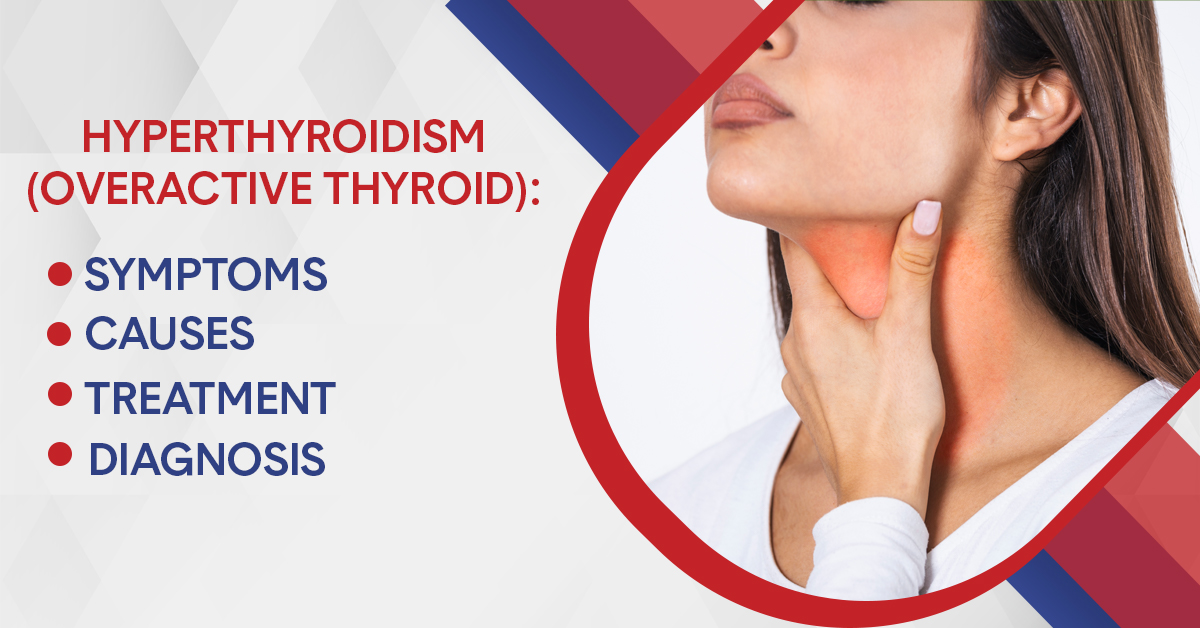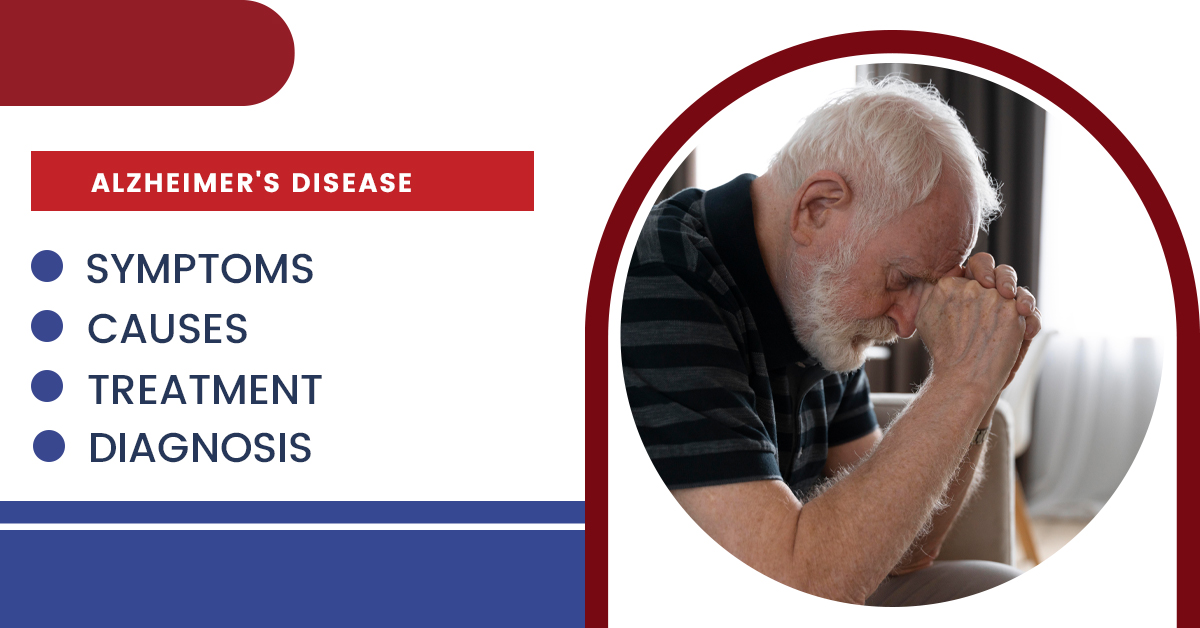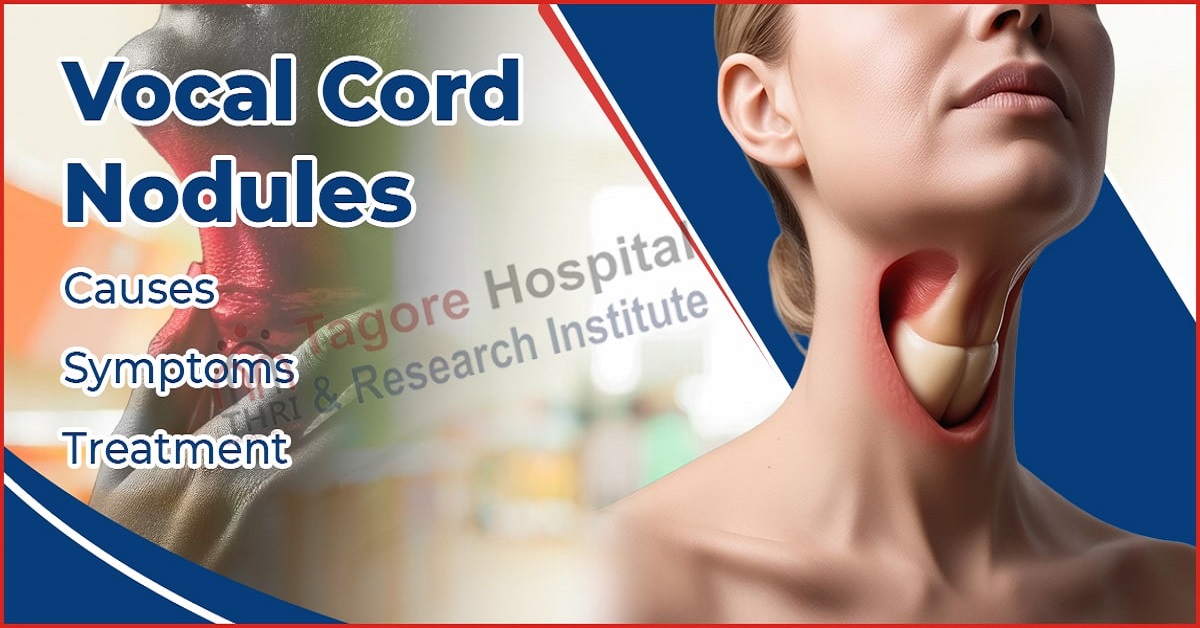- By THRI Admin
- Posted July 14, 2022
When you have hyperthyroidism, also known as an overactive thyroid, your thyroid produces and secretes large amounts of thyroid hormone. Your metabolism may increase as a result of this disorder. A quick pulse, weight loss, increased appetite, and anxiety are all signs of hyperthyroidism. Among the treatment options for hyperthyroidism are antithyroid medications, radioactive iodine, beta-blockers, and surgery.
Your thyroid produces two important hormones that influence how your body functions. Thyroxine (T-4) and triiodothyronine are the names of these (T-3).
Your thyroid regulates things like how quickly you burn calories and how rapidly your heart beats. To regulate your metabolism, it releases hormones (all the things your body does to turn food into energy and keep you going).
Parathyroid hormone is another crucial hormone produced by your thyroid. This keeps your blood's level of calcium at a healthy level.
A butterfly-shaped gland, the thyroid is situated at the front of your neck. You have glands, which are organs, all over your body. Hormones, which support your body's growth and function, are produced and released by a few of your glands. The thyroid gland is very important for many of your body's essential processes, such as:
- controlling the temperature of your body.
- regulating the rate of your heart.
- the management of metabolism (the process that transforms the food you put in your body into energy that helps your body function).
What Causes of Hyperthyroidism?
The following illnesses and circumstances can result in hyperthyroidism:
- Graves disease: In this condition, your thyroid is attacked by your immune system. Your thyroid overproduces thyroid hormone as a result of this. Graves' illness is a genetic disorder (passed down through a family). There is a possibility that other family members could develop Graves' disease if one member of your family does. Those identified as female at birth experience it more frequently than those born as male. With roughly 85 percent of cases, Graves' disease is the most frequent cause of hyperthyroidism.
- Nodules in the thyroid gland known as thyroid nodules are lumps or cellular growths. Your body may receive more hormones from them than it requires. Rarely are thyroid nodules malignant.
- Thyroiditis: An inflammation of your thyroid gland, which may be painful or not, is known as thyroiditis (silent). It might occur within a year of having a baby (postpartum thyroiditis). Your thyroid may not be able to recover from thyroiditis, which would result in hypothyroidism.
- Iodine overdose: If you have hyperthyroidism and take too much iodine, either through your food or prescription drugs, your thyroid may generate extra thyroid hormone. Your thyroid uses the element iodine to make thyroid hormones. Hyperthyroidism may also result from receiving intravenous iodinated contrast (iodine "dye"). Amiodarone, a drug with a high iodine content, can also result in hyperthyroidism.
Symptoms of Hyperthyroidism:
Everybody has a different set of symptoms.
- Nervousness
- Irritability
- Sweating more than normal
- Thinning of the skin
- Fine, brittle hair
- Muscle weakness, particularly in the arms and thighs
- Shaky hands
- Fast heartbeat (palpitations)
- High blood pressure
- More bowel movements than normal, diarrhea
- Weight loss
- Trouble dealing with the heat
- Problems sleeping
- Prominent eyes
- Sensitivity to bright light
- Confusion
- Irregular menstrual cycle in women
- The feeling of being tired and lacking energy (fatigue)
- It is a condition in which the thyroid gland is larger than normal (goiter)
Hyperthyroidism Vs Thyrotoxicosis
Thyrotoxicosis includes hyperthyroidism. When your thyroid gland both generates and secretes too much thyroid hormone, hyperthyroidism results. An overactive thyroid is a common name for hyperthyroidism. When your body produces too much thyroid hormone overall, thyrotoxicosis results. For instance, using excessive amounts of thyroid medication could result in an overproduction of thyroid hormone. This would not be hyperthyroidism, but thyrotoxicosis.
Risk Factors of Hyperthyroidism
Both men and women can have hyperthyroidism, but according to the National Institutes of Health (NIH), women are up to 10 times more likely to have it.
You are more likely to get hyperthyroidism if you:
- have thyroid illness running in your family
- possess terrible anemia (a vitamin B12 deficiency)
- possess type 1 diabetes
- Possess primary adrenal insufficiency, sometimes referred to as Addison's disease (a condition when the adrenal glands fail to generate adequate hormones, such as cortisol).
- eat a diet high in iodine or take iodine-containing medicines (like amiodarone)
- Are you older than 60?
- within the previous six months, we're expecting
- Had a goiter, also known as an enlarged thyroid gland, or undergone thyroid surgery
Complications of Hyperthyroidism
Several issues might result from hyperthyroidism:
- Heart issues. Heart problems are among the most severe effects of hyperthyroidism. Among them are rapid heartbeats, atrial fibrillation, a heart rhythm issue that can result in strokes, and congestive heart failure, a condition that causes an inadequate supply of blood.
- broken bones. Weak, fragile bones can also result from untreated hyperthyroidism (osteoporosis). Your bones' mineral makeup, particularly their calcium and other mineral content, affects how strong they are. The ability of your body to incorporate calcium into your bones is hampered by an excess of thyroid hormone.
- eye issues. People who have Graves' ophthalmopathy experience vision issues such as double or blurred vision, bulging, red, or inflamed eyes, and light sensitivity. Vision loss may result from severe eye conditions that go untreated.
- Bruised, rosy skin. People who have Graves' disease can occasionally develop Graves' dermopathy. Often on the shins and feet, this damages the skin, causing redness and swelling.
- Thyrotoxic emergency Additionally, hyperthyroidism puts you at risk for thyrotoxic crisis, which is a sudden worsening of your symptoms that can result in a fever, a rapid heartbeat, and even delirium. Get medical attention as soon as possible if this occurs.
How is hyperthyroidism diagnosed?
A physician will gather your personal and family medical history, perform a physical examination, and test you for hyperthyroidism. Symptoms, clinical indicators, and lab testing are typically used by doctors to make the diagnosis of hyperthyroidism.
These diagnostic procedures comprise:
- T4, free T4, and T3 level tests. These examinations evaluate your blood's level of thyroid hormones (T4 and T3).
- Thyroid-stimulating hormone (TSH) level test. TSH is a hormone produced by the pituitary gland that prompts the thyroid to generate hormones. Your pituitary gland reacts to elevated thyroid hormone levels by producing less TSH. Hyperthyroidism can be detected early by an abnormally low TSH.
- Thyroid scan (Radioactive iodine uptake scan). Monitoring how much iodine your thyroid "takes up" from your bloodstream, aids your doctor in determining whether your thyroid is hyperactive. Your doctor will administer a little dose of iodine to you as a tablet or liquid. Then, as you lay on a table, a specialized camera will capture pictures of your thyroid. A thyroid scan in particular can show if the entire gland or just a particular location is the problem.
- Ultrasound of thyroid. The thyroid gland's overall size, as well as any tumors present, can be determined using ultrasound technology (such as nodules). The solidity or cystic of a mass can also be determined by doctors using ultrasounds.
- CT or MRI scans. If a pituitary tumor is present, a CT scan or MRI can demonstrate this.
How to treat hyperthyroidism?
Based on your age, general health, the kind and severity of your hyperthyroidism, and other factors, your doctor will help you choose a course of treatment. Your choices could be:
Antithyroid drugs. Propylthiouracil (PTU) and methimazole (Tapazole) prevent your thyroid from producing too many hormones. These medications will usually reduce your symptoms within a few weeks or months, but you may need to continue taking them for up to 18 months to help reduce the likelihood of a relapse. Because of its milder side effects, methimazole is more frequently recommended.
Allergic reactions like redness or itching are examples of side effects. Up to 3percentage of persons taking antithyroid drugs experience allergic reactions. Rarely, but these medications can also lead to a disorder known as agranulocytosis, in which your body produces fewer white blood cells.
You are more likely to contract infections as a result. These medications seldom cause liver damage, so if you experience any symptoms like yellow skin or eyes, exhaustion, fever, sore throat, or abdominal pain, call your doctor straight immediately.
Beta-blockers. These drugs relieve symptoms like anxiety, tremors, or a rapid heartbeat but do not alter your thyroid hormone levels. The way thyroid hormone functions in your body are impacted by beta-blockers. The most typical treatment for them is high blood pressure. among the negative effects:
- Headache
- Dizziness
- Digestive problems
Radioactive iodine. A little amount of radioactive iodine is ingested. It is absorbed by overactive thyroid cells, and it kills them. Your thyroid will shrink as a result, and your thyroid hormone levels will decrease. This treatment might be required more than once. This drug may potentially result in hypothyroidism since it causes your thyroid to slow down. Treatment for this is simpler than for hyperthyroidism: One time every day, you'll take a hormone supplement. Typically, it takes 3 to 6 months to start working. For more than 60 years, physicians have utilized radioactive iodine to treat hyperthyroidism. It is used to treat more than 70percentage of individuals with hyperthyroidism and is generally regarded as safe.
Surgery. Your doctor might remove all or part of your thyroid if drugs aren't a good option for you. The term for this is thyroidectomy. To avoid difficulties, you might need to take antithyroid medications before surgery. You can then develop hypothyroidism and require a hormone supplement. You might require medication to keep the calcium levels in your blood where they ought to be if your parathyroid glands are also removed.
Risks are involved with this procedure. Your parathyroid glands and voice chords may both suffer harm.
When to See a Doctor?
It's crucial to see your healthcare professional if you have hyperthyroidism symptoms so they can examine you and make a therapy recommendation.
- Change in consciousness
- Dizziness
- Rapid, irregular heartbeat
If you've already received a hyperthyroidism diagnosis, you'll probably need to visit your doctor frequently to make sure your treatment is effective.
Tags





